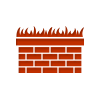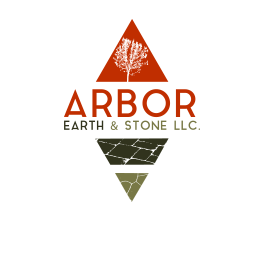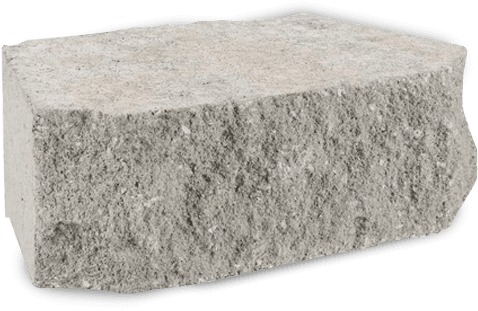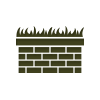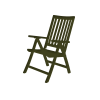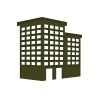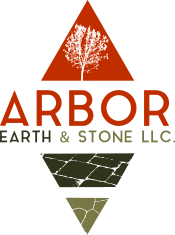Retaining Wall FAQ
Frequently Asked Questions About Retaining Walls
Arbor Earth & Stone is here to answer your questions about retaining walls for residential and commercial properties. If you don't see your question answered here, feel free to contact us directly!
Q: What are retaining walls?
A: Retaining walls are brick or stone block walls made to prevent damage from erosion or surface runoff on angled or elevated property. They may be used on residential or commercial property to prevent water and soil from shifting and changing the landscape.
Q: What are the benefits of a retaining wall for my home?
A: Residential retaining walls are most often used to protect exposed basements from the effects of erosion. With enough time and rain, soil can block basement doors and windows if not restrained by a retaining wall.
Houses on top or below high hills also benefit from retaining walls. For homes on top of hills, retaining walls keep the foundation from shifting. For homes at the bottom of a hill, a retaining wall will keep loose soil from building up around the house. Different placement of a wall will provide different results for your home and yard.
Q: What are the benefits of a retaining wall for my business property?
A: Commercial retaining walls provide functional support and aesthetic appeal to business properties. When constructing a new building, retaining walls help keep the area level by controlling the grading.
Q: What are retaining walls made from?
A: Most retaining walls are created by interlocking blocks made from brick or stone, though some are made from poured concrete or even wood.
Q: How many different looks are available for retaining walls?
A: There are countless possibilities for your commercial or residential retaining walls. Blocks are available in different sizes, a variety of colors, and from different materials. The walls themselves may be anywhere from a single foot tall to several feet tall. Ask our Arbor Earth & Stone contractors for details about custom retaining wall designs for your property.
Q: What are decorative retaining walls?
A: Decorative retaining walls add to the appearance of your property while providing protection from erosion or surface runoff. Different bricks, patterns, and colors will give you a customized wall to match your home and other landscaping features.
Q: What are segmental retaining walls?
A: Brick or stone blocks are stacked in an interlocking pattern to create segments along your wall. This is different from some retaining walls which are a single piece of poured concrete or made from slatted wood. The blocks have to be specifically placed to ensure the fit is right and the final wall will be strong.
Q: Can retaining walls be incorporated into landscaping features?
A: Yes! Arbor Earth & Stone landscapers will find creative and exciting ways to include your retaining walls into your home or business landscape designs. Multiple retaining walls can form a garden terrace in your yard or form the backdrop to a pool or patio area.
Q: What if my property is steeply graded?
A: Creating a terrace pattern with your retaining walls will make up for steep grading and give your yard more appeal. Arbor Earth & Stone contractors have experience installing retaining walls even on severe slopes.
Q: How are retaining walls different from seawalls?
A: Seawalls are made for shoreline protection. Though they act in the same manner as retaining walls by preventing erosion, they are only located along the banks of a body of water. Building a stone or brick retaining wall too close to the water can cause the wall to fail. If you own a waterfront property, ask our team how retaining walls and seawalls will protect your land.
Q: How high can a retaining wall be?
A: Several factors will determine how high your retaining wall will be. Some walls may only need to be 2 feet high while others on commercial land might exceed 40 feet. It will depend on your property and how much protection you need the wall to provide. Our experts will determine the right size for your retaining walls.
Q: Will a retaining wall block my view?
A: This will depend on where your wall will be built. Since many residential retaining walls are used to reinforce the foundation near exposed basements, it’s likely the view from the basement windows will be blocked by a new wall.
Q: How long will it take to build a retaining wall?
A: The length of your retaining wall will be based on the conditions of your property. The wall might only be 5 feet or it might stretch across your entire backyard. Let our experts help you find a visually appealing solution today.
Q: Are retaining walls bad for the environment?
A: No, retaining walls are not bad for the environment. Allan Block in particular offers environmentally friendly retaining walls due to their new green blocks, made from recycled material and free from toxins.
Q: Should I have a fence at the top of my retaining wall?
A: If you have a very tall retaining wall, you might want to add some sort of fence to the top to prevent anyone accidentally falling over the side. Parents with residential retaining walls may want to use fences while their children are young to prevent falls as well. Shorter retaining walls should not need any fencing.
Q: Are there different colors for retaining walls bricks?
A: Yes, there are many colors and styles available for retaining wall blocks! View our retaining wall gallery to see some of our residential and commercial designs in action.
Q: How long do retaining walls last?
A: Stone and brick retaining walls have been known to last for decades. Some soil and weather conditions might weaken the wall, though when professionally built and maintained they should not have any problems.
Q: Is it better to have a professional install a retaining wall?
A: Yes, using a professional contractor like Arbor Earth & Stone is better for many reasons. When installing retaining walls, a sturdy foundation base has to be established beneath the site of the wall. We will keep your walls level, accounting for changes in soil conditions, so your wall does not appear crooked or lopsided.
If your retaining wall needs reinforcement, our contractors will be able to take this into account during installation. Finally, stone and brick blocks can be heavy, making them very difficult to move and place without prior experience.
Q: What sort of draining system should be installed with my retaining wall?
A: Our contractors will find the best drainage solution for your retaining walls. Some walls may require drainage pipes while others only need a few weep holes drilled into the blocks.
Q: Are retaining walls straight or can they curve?
A: With the contractors of Arbor Earth & Stone, your segmented retaining wall can be built along a curve instead of in a straight line. This will help you add to the landscaping of your yard. Many property owners find the curved designed more appealing than straight walls.
